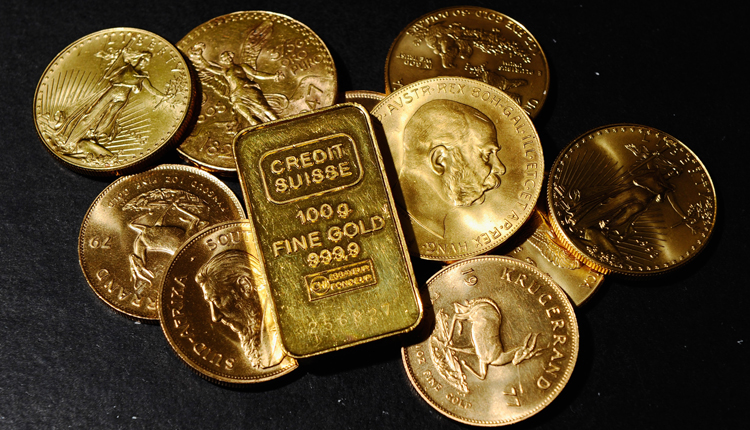Gold prices were steady early Wednesday, after slipping to a near two-week low in the previous session, as investors waited for the outcome of the U.S. Federal Reserve’s monetary policy meeting for outlook on interest rates.
Spot gold was unchanged at $1,223.45 an ounce at 0050 GMT, after hitting the lowest since July 19 at $1,214.40 overnight. U.S. gold futures were 0.1 percent lower at $1,222.40 an ounce.
The Federal Reserve is expected to keep interest rates unchanged on Wednesday, but solid economic growth combined with rising inflation are likely to keep it on track for another two hikes this year even as President Donald Trump has ramped up criticism of its push to raise rates.
U.S. consumer spending increased solidly in June as households spent more at restaurants and on accommodation, building a strong base for the economy heading into the third quarter, while inflation rose moderately.
The Chinese yuan dropped in offshore trade and the Australian dollar slipped on Wednesday on a report the U.S. administration will propose raising its planned tariffs on $200 billion Chinese imports to 25 percent.
The dollar index, which measures the greenback against a basket of six major currencies, was steady at 94.537.
China will keep its economic growth within a reasonable range and achieve this year’s target despite challenges, the state-run Xinhua news agency said on Tuesday as a trade war with the United States intensifies.
The Bank of England should raise interest rates this week but also tell the public it will be ready to make a U-turn if Brexit talks sour or trade tensions with the United States escalate, the National Institute of Economic and Social Research said on Wednesday.
The Bank of Japan pledged to keep its massive stimulus in place but made tweaks to reduce adverse effects of its policies on markets and commercial banks, reflecting the central bank’s view that its inflation target remains stubbornly out of reach.
Euro zone economic growth slowed further in the second quarter, preliminary data showed, on what economists said were concerns over a possible trade war with the United States.
Source: Reuters


